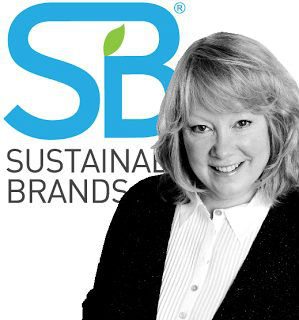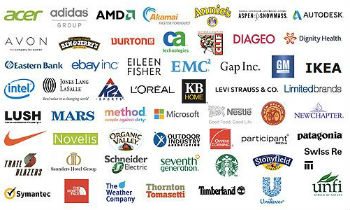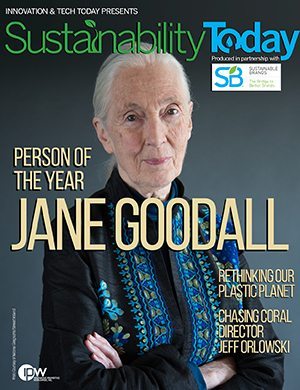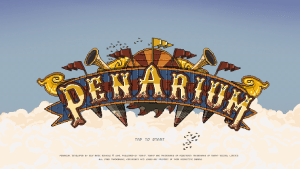It has been more than ten years since KoAnn Skrzyniarz combined her business background with her deep love and concern for our environmental and social future. Her goal? To reframe sustainability as the most significant innovation opportunity of the 21st century – rather than merely a risk or cost savings play – and to help brands prosper by leveraging environmental and social innovation to build a flourishing future.
In 2007, the first Sustainable Brands event was held, drawing 225 people to New Orleans. Today, Sustainable Brands is the first name among sustainability conferences and online communities worldwide. The community reaches over one million readers around the world, with major events across six continents.
KoAnn Skrzyniarz talked with us here at Innovation & Tech Today about Sustainable Brands, the growth of sustainability in business, and more.
Innovation & Tech Today: Tell us a little about Sustainable Brands.
KoAnn Skrzyniarz: Sustainable Brands is a global community of change-makers, who are working to tap environmental and social purpose as a driver of business growth and value. Our goal is to shift the world as quickly as possible to sustainable models of commerce that respect the limitations of our natural systems, decouple business growth from negative environmental impacts, and respect and support our need to redesign societal aspirations away from consumption for consumption’s sake. Sustainable Brands events are where the community convenes face to face around the world. The community is also alive and well online on www.SustainableBrands.com, where members read, share stories, and research best practices and trends, as well as in our social media groups on Facebook, Twitter, LinkedIn, and YouTube.
Our goal with Sustainable Brands is to bring together all the parts of the ecosystem required to bring a more environmentally and socially respectful and resilient brand to market – from technical sustainability, packaging, materials, and supply chain experts to brand strategy, marketing, and innovation professionals. We seek to help them build a common language and a shared view of what’s possible so they can begin to collaborate on envisioning, building, and selling brands that are better for their customers, better for suppliers, and better for the communities in which they operate, as well as for their investors.
The 2018 Flagship Sustainable Brands Conference will be held June 4-7 in Vancouver.
I&T Today: Sustainable Brands conferences have grown steadily. At the past three San Diego events we’ve attended, we’ve seen well over 1,500 highly engaged attendees, and you now have conferences around the world.
KoAnn Skrzyniarz: Actually, our entire business has been growing organically, driven by demand from people around the world to participate in the conversation we’ve been exploring since 2007. In addition to our conferences, we also have a growing corporate member network, which includes companies like Natura, Johnson & Johnson, Disney, Target, BASF, Unilever, Ford, and many more who are meeting in private member meetings throughout the year to share learning and discuss challenges.
I&T Today: “Sustainability” and “sustainable” have gone from being words of environmentalists and alternative lifestylists to the center of corporate and personal living. Now, everyone seems to claim an understanding, or at least an idea, of what sustainability means. What does it mean to you?
KoAnn Skrzyniarz: We launched Sustainable Brands with the view that sustainability is a mindset honoring whole systems thinking, which seeks to understand the impact of our actions on the long-term sustenance of life on earth. There are many things which play into this. Clearly, if our natural world and environmental systems are not protected, we will not be sustained as a species.
However, social behaviors such as unhealthy consumption, inequality, exploitation, religious conflicts, and cultural homogenization and other territorial conflicts that lead to war or other forms of violence are all “unsustainable,” and we see opportunities for brands to positively address each of these challenges and more.
I&T Today: Do you have an example of a brand, company, or segment that does good work in this area?
 KoAnn Skrzyniarz: Natura, the top cosmetics brand in Brazil, is a great example of a company seeking earnestly to understand and behave in innovative and sustainable ways. From their commitment to sustainably sourced ingredients from the Brazilian rainforest to their efforts to support the economic empowerment of local indigenous peoples, to their commitment with the Sou brand to remind consumers that consuming only what’s essential is a better path to a healthy happy life, they are an exemplar on many levels. That said, a journey through our website will uncover countless examples from here in the U.S. and around the world.
KoAnn Skrzyniarz: Natura, the top cosmetics brand in Brazil, is a great example of a company seeking earnestly to understand and behave in innovative and sustainable ways. From their commitment to sustainably sourced ingredients from the Brazilian rainforest to their efforts to support the economic empowerment of local indigenous peoples, to their commitment with the Sou brand to remind consumers that consuming only what’s essential is a better path to a healthy happy life, they are an exemplar on many levels. That said, a journey through our website will uncover countless examples from here in the U.S. and around the world.
I&T Today: What is needed to take the concept of sustainability out of the field of discourse and into practice inside companies?
KoAnn Skrzyniarz: A commitment to action. There are so many tangible examples around the world of solid return on investment today that companies that aren’t taking notice and taking action are at risk of falling behind. Unilever recently announced that its strongest fastest-growing brands, which are delivering half its growth at twice the growth rate of other growth brands, have purpose embedded in the core and are part of their Sustainable Living Brands portfolio.
Companies need to start by looking at and quantifying the range of material impacts they have on the environment and society as a function of their activities, identifying best practices for reducing negative impact, and conversely, actually intentionally delivering positive impact. It’s worth noting that leadership can often be found outside one’s own sector, which is part of the beauty of our multi-sector, multi-stakeholder community.
I&T Today: Can products that are known to cause harm be considered sustainable? And how are companies working around that? For instance, Coca-Cola is commercializing other products, like teas and water. Is this to change its image?
KoAnn Skrzyniarz: Coke would argue, and I likely would too, that sugar by itself is no more harmful than any number of things we consume. It can add an enjoyment/delight factor to life with little to no downside if consumed in healthy moderation. Our human lifespan has expanded tremendously over the decades, despite the existence of Coke throughout much if not most of the world. The problem is overconsumption. That said, for sure, as global consumer trends shift toward more conscious consumption of not only food, but clothing, personal care products, transportation, and more, companies have the opportunity to actively partner with their customers to shift their portfolios to products and services that are healthier for them, their communities, and the planet. Smart companies realize this is much more than an image issue – it is a strategy and innovation issue, and just smart business.
I&T Today: Tell us a little more about Coke’s new strategy because it certainly is lighting up sustainability headlines and keynotes the world over.
 KoAnn Skrzyniarz: Coke is aware of the risks to their consumers, to their brand, and to their businesses of encouraging, or allowing, the unabated overconsumption of their products that can lead to obesity. They’re also aware of other material impacts of their activities, on water use for example.
KoAnn Skrzyniarz: Coke is aware of the risks to their consumers, to their brand, and to their businesses of encouraging, or allowing, the unabated overconsumption of their products that can lead to obesity. They’re also aware of other material impacts of their activities, on water use for example.
I&T Today: Coca-Cola’s initiative really hits on the human side of sustainable living, doesn’t it? When we reviewed it, we found it hard to believe it came from a soft drink manufacturer.
KoAnn Skrzyniarz: Yes. Coke’s sustainability strategy focuses on Me, We, The World, and then Women, Water, and Wellness. That is to say that generally, as humans, our awareness tends to start with what goes in me (or my family), then what goes on me (or my family), then what is around me in my home, my community, and the greater world. For this reason, we tend to be most aware of, and motivated first by, moving toward healthier eating, non-toxic personal care products, textiles, and home furnishings; those markets are moving most quickly toward favoring organic, non-toxic, locally manufactured brands. That said, this awareness, once it becomes real for people, tends to extend to the more indirect spheres of consumption like our transportation, and ultimately our technology. Markets that face the most serious resource constraints are obviously driven faster by supply risk rather than consumer demand.
I&T Today: Coca-Cola, Levi’s, Patagonia, and HP, all Sustainable Brands community members, are among companies driving better treatment of workers. Can you discuss this issue, which is one of the central components of sustainability today?

KoAnn Skrzyniarz: This is something that is much more broadly of interest to consumers globally than even the health of our planet. It is much more tangible for people to understand the connection between their purchase of a product and who and how it was made. For example, the textile and electronics industries continue under pressure to improve conditions in their factories. The issue of conflict minerals in the jewelry and tech sectors is of growing visibility and concern, and therefore innovation.
I&T Today: Do we need a revolution to move from an industrial society to a service society? How can we manage to make this transition?
KoAnn Skrzyniarz: Yes, this is one important way to think about how we can decouple economic growth from the use of environmental resources. Business model innovation is a big part of the solution to moving toward a circular economy, so moving from ownership to access or shareability. Much great thinking is being done around both of these models: Circular/Cradle to Cradle Design, and Collaborative or Shareable Consumption.
I&T Today: Are there people thinking of ways to make this change happen more smoothly? Or do you think that inevitably we will have a crisis when this happens?
KoAnn Skrzyniarz: This is a primary goal of our work at Sustainable Brands. Some organizations and individuals are out to see the dismantling of global brands like Coke or Starbucks or Walmart. We see the economic tragedy that would befall our world if all those people employed by the world’s biggest brands fell apart. This is why our efforts are squarely focused on accelerating the transition of all these companies to sustainable ways of operating, by connecting them with great ideas and entrepreneurs who they can help scale as alternates to their less sustainable offerings.
I&T Today: Will sustainability be at some point a theme for the masses? Should we develop courses and curricula for this in high schools, colleges, and grad and business schools? What is its relevance in coming decades?
KoAnn Skrzyniarz: Embedding sustainability as an intrinsic mindset into all people around the world is the number one requirement for this century. We cannot progress as a species until we understand that our actions have an impact on our own individual and collective survival. We need to behave in ways that enable the long-term survival of our species – if only for the sake of our own kids.
Once we arrive at a global population that understands these issues and how to tackle them, we can move on to further develop our capacity as humans to fully self-actualize and experience true joy and enlightenment. As it turns out, this is something much more disconnected from our capacity to consume than we have come to assume over the past 50-60 + years.









